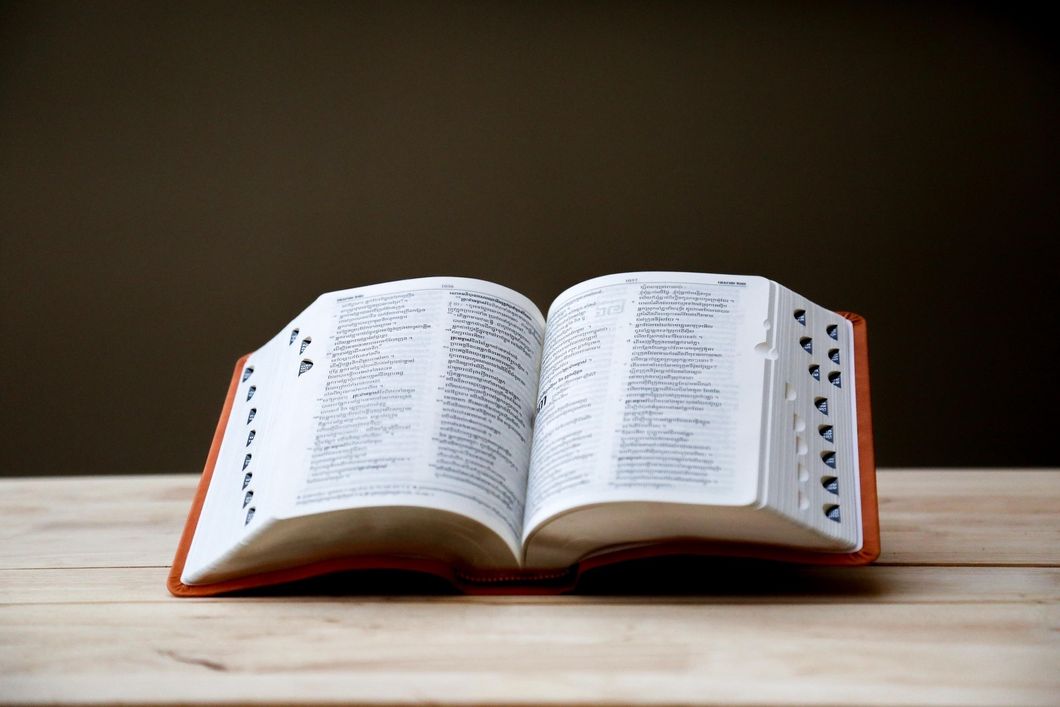The English language is quite complex. We all slip up sometimes and I won't blame anyone for that, but I cannot put up with constantly destroying concepts and structural rules that really aren't that difficult to master any longer. So, I've compiled a list of grammar faux pas that I absolutely refuse to accept, and if everyone would read this I think it may be an improvement upon society as a whole.
1. You didn't seen it, you saw it.
I cannot STAND when people say "Yeah I seen that yesterday." No, no you didn't. You didn't seen it, you saw it.
2. To, Too, and Two
Preposition, "also" or an excessive amount of, and the number: in that order.
3. Their, They're, and There
Possessive, contraction for "they are", location: in that order.
4. Your and You're
"Your" is possessive, and "you're" is a contraction for "you are". This is a fairly common one, and it really just makes you look bad. Learn your homophones, people.
5. Affect and effect
The way I like to remember this one is “the Effect was Affected”. Basically, affect is the one you use when you need a verb, whereas effect with an “e” is a noun.
6. Should "of"
This one really grinds my gears, people. You should HAVE, could HAVE, would HAVE, corrected that mistake years ago, and you didn't.
7. Gonna and wanna
I am guilty of this one as well, and I kick myself every time I do it, but it really should be "going to" and "want to".
8. Ain't

Ever heard the saying “Ain't ain't a word and it ain't in the dictionary"? Well, I'm pretty sure it's in the dictionary now, but I don't consider it a word. Too colloquial for me, just say "not" instead. It's literally less letters.
9. Between or among?
Both words are used to show a relationship between two or more things. That said, between is used when there are two objects in question, and among is used when there are more than two.
10. I could care less

Really? Becauee if you couldcare less it defeats the message that you're sending. You mean that you couldn't care less. Normally people say this what they've become upset with something or someone, so if you couldn't care less then you are at your maximum capacity of caring to give. If you could care less, then you would. Get it?
11. Then vs. than
Then with an "e" is chronological, than with an "a" is comparative. "Then she said that I was better than her".
12. ;

Semicolons. Nobody likes them, and no one knows how to use them either. Fear not, you've come to the right place. A semicolon serves the purpose of connecting two independent clauses together! For those of you who don't know what on earth that means, essentially it connects two complete thoughts that are related.
13. Oxford comma

I have 100% faith in the Oxford comma. The Oxford comma is the comma that comes before the "and" that comes before the last item in a list. This concept is heavily debated, believe it or not, but I think it is necessary when listing a series of items. Commas indicate pauses, and we pause before every item when listing things.
14. "I don't know nothing."
Double negatives might be one of my biggest grammatical pet peeves. A double negative cancels out, so if you were to say, "I don't know nothing", what you're really saying is, "I do know something". Double negatives are no good.
15. Less vs. fewer

Less should be used when discussing amounts of something that are not countable, whereas fewer is used in more specific circumstances to count things or objects.
16. Do you mind...?
If you are willing to do whatever is being asked of you, the correct answer is some variation of "No, I don't mind" but so often you hear people say "Yes, of course!" Its quite entertaining to hear a conversation like this and pay attention to both the question and the answer, because someone who is wiling to do something may say that yes, of course, they mind which would mean they don't want to. Usually, in this context, one or both parties just end up sounding incredibly sarcastic.
17. Good vs. well
"Well" describes a verb. So technically, when someone asks you how you are, you should respond with "I'm well, how are you?", instead of "I'm good". Crazy, right?
18. Pronoun agreement
Traditionally, if you're talking about one person, you must keep the pronouns singular throughout. Multiple people can be referred to as "they," but far too often we will discuss a single entity and replace it with a plural pronoun.
19. Its and It's
Normally, we use apostrophes to indicate possession, however that is not the case with this one, which is why IT'S so tricky. "It's" stands for the phrase "it is", where "its" sans apostrophe is used for possession. IT'S really not that difficult when you think about it
20. Were and we're
I know autocorrect sometimes screws this one up for us, but apostrophes really do matter. Here, an apostrophe is the difference between a linking verb and a contraction meaning "we are".
21. Elicit vs. illicit
Relatively obscure and a bit more sophisticated than the rest, but important all the same. To elicit something is to bring it out, whereas if something is illicit it is illegal or frowned upon. Two very different words with very similar spellings, so watch out.
22. The hypothetical
If you are discussing the future or something that may happen, be sure to use "would" and "were" as your verbs as opposed to "was."









































